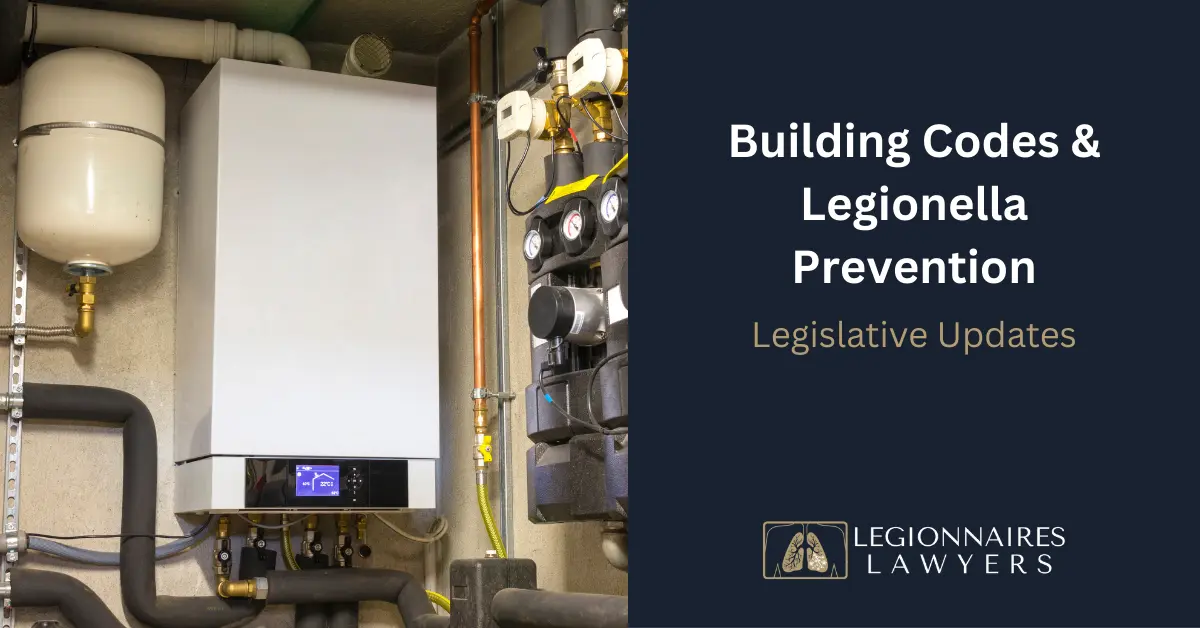
Legionnaires’ disease continues to make headlines across the United States, with outbreaks reported in New York City, Ohio, and other regions in 2025.
This serious form of pneumonia, caused by inhaling water droplets contaminated with Legionella bacteria, has increased scrutiny on how building codes and regulations address water system safety.
As cases rise, lawmakers, public health agencies, and industry groups are updating building codes and enforcing new requirements for Legionella prevention in:
- Commercial properties
- Residential buildings
- Healthcare facilities
In this article, we’ll review the most recent legislative updates on building codes and Legionella prevention, explore best practices recommended by organizations like ASHRAE and the CDC, and highlight what building owners and facility managers need to know to stay compliant.
Why Are Building Codes Changing to Address Legionella Prevention?
Legionella thrives in stagnant, warm water found in:
- Plumbing systems
- Cooling towers
- Decorative fountains
- Hot tubs
When systems aren’t properly managed, the bacteria can spread and cause outbreaks.
Example: In 2025, an outbreak in Central Harlem was linked to poorly maintained cooling towers.
Other factors that increase risk include flooding, aging infrastructure, and prolonged shutdowns (schools, renovations, seasonal closures.)
This has pushed for mandatory water management programs (WMPs), stricter testing, and codified maintenance practices for new and existing buildings.
The Standards Driving New Legionnaires’ Disease Regulations
Most state and local regulations are being built around nationally recognized standards:
- ASHRAE Standard 188 (2015, updated 2021): Minimum requirements for design, construction, operation, and maintenance of building water systems.
- ASHRAE Guideline 12-2023: Practical guidance for controlling Legionella in specific building systems.
- CDC Legionella Toolkits & Training: Step-by-step resources for developing and implementing WMPs.
Together, these resources are shaping how building codes evolve across the U.S.
State-by-State Legislative Updates on Legionella Prevention
Several states have already passed or proposed Legionella prevention laws requiring compliance with ASHRAE 188:
- Illinois: Hospitals and nursing facilities must create Legionella testing policies and report results.
- Michigan: Health facilities must implement WMPs, risk assessments, and ongoing verification.
- New York: Strict cooling tower rules (registration, 90-day inspections, testing) + potable water sampling in hospitals.
- Virginia: Schools required to adopt WMPs.
- New Jersey & Pennsylvania: Considering bills requiring WMPs for building operators and public water systems.
These legislative actions reflect a growing consensus that voluntary compliance is not enough. Instead, binding regulations are becoming the norm.
What Building Owners and Facility Managers Must Do to Stay Compliant
For property owners, developers, and facility managers, compliance with Legionnaires’ disease regulations means more than checking boxes it’s about safeguarding health and minimizing liability. This legislative trend means:
- Adopt Water Management Programs (WMPs): Even if not required in your state, it’s quickly becoming industry best practice.
- Regular Testing & Monitoring: Culture sampling and qPCR testing—often required quarterly.
- Documentation & Recordkeeping: Keep inspection logs, disinfection records, and corrective action reports.
- Protect Occupants & Limit Liability: Legionnaires’ disease cases linked to a property can lead to lawsuits, insurance claims, and reputational damage.
The Future of Building Codes: Toward Nationwide Legionella Prevention Standards
Experts predict more states will follow New York and Michigan in enacting enforceable Legionella control codes. The CDC encourages amendments to building and health codes to require WMPs. Consistency is crucial: with ASHRAE 188 as the foundation, nationwide legislation will streamline standards, reduce confusion, and strengthen prevention efforts.
Protecting Health and Knowing Your Rights
Legionnaires’ disease is not just a building safety issue—it’s a public health concern with serious consequences. For building owners and managers, staying updated on Legionella prevention laws is critical for compliance and liability protection.
For those diagnosed with Legionnaires’ disease, the impact can be life-changing. Along with medical care, consulting experienced Legionnaires’ lawyers can help investigate exposure, determine negligence, and recover compensation.
By following updated codes, implementing water management programs, and understanding your rights, we can reduce outbreaks and ensure safer, healthier buildings.


